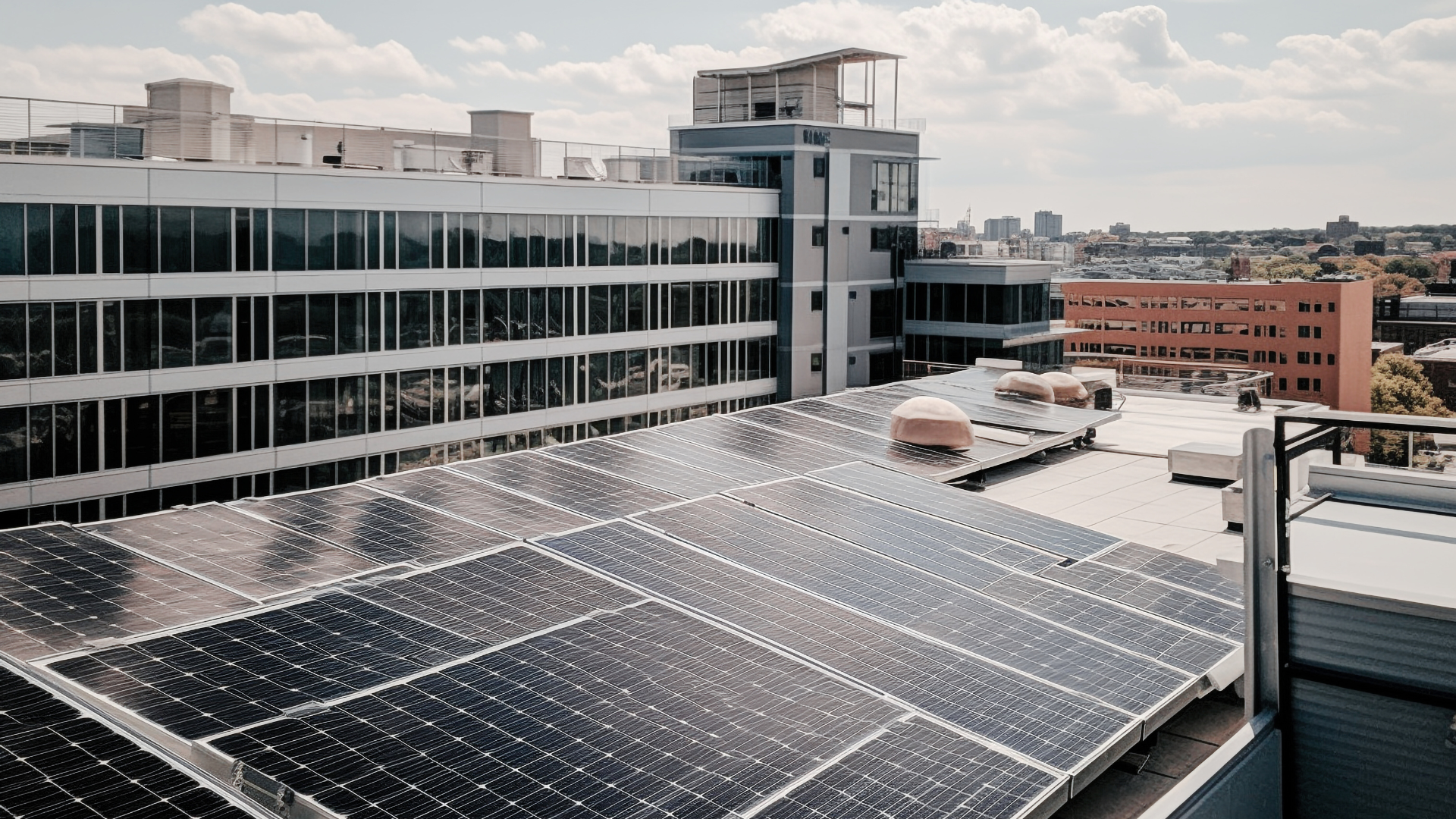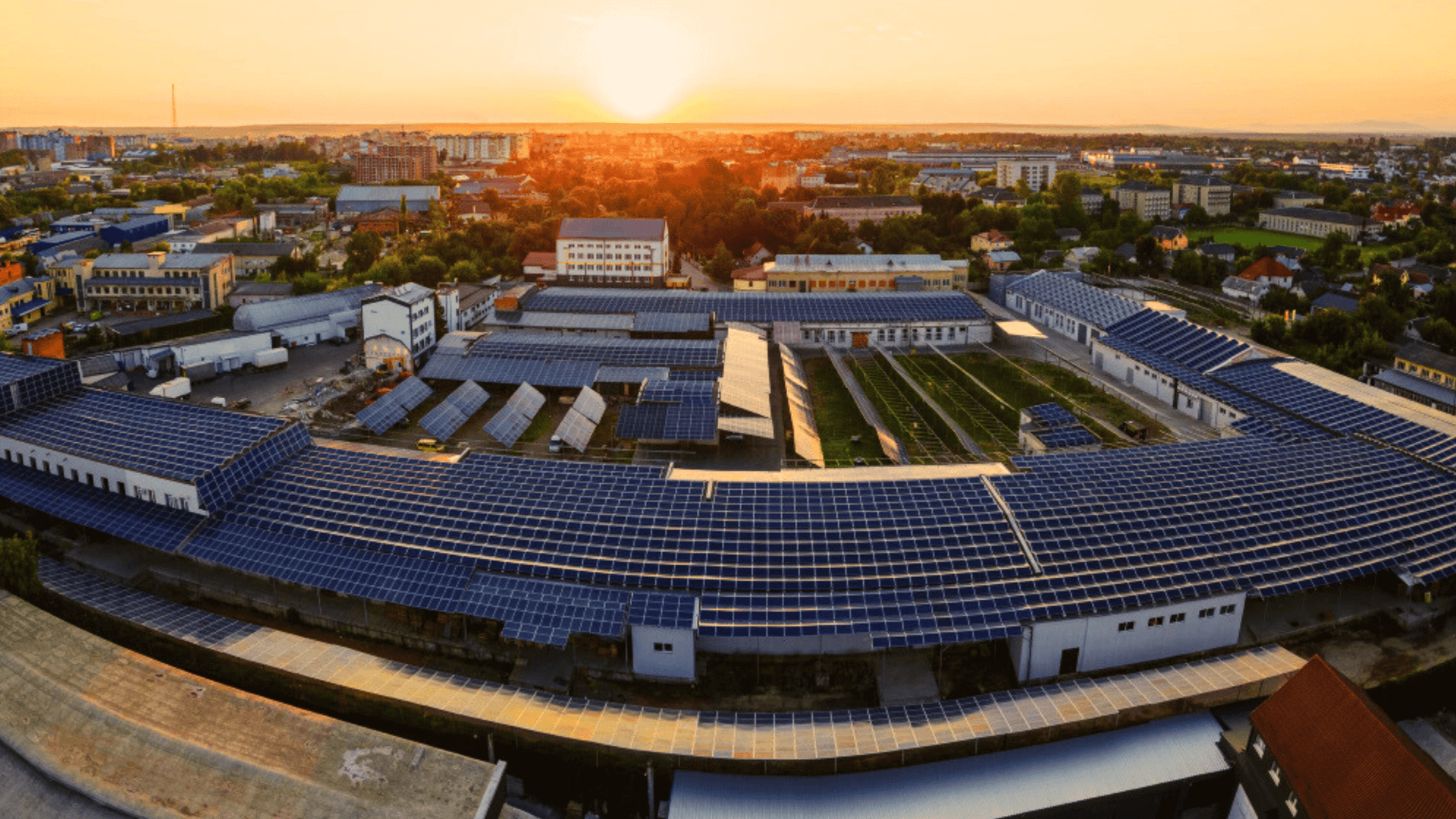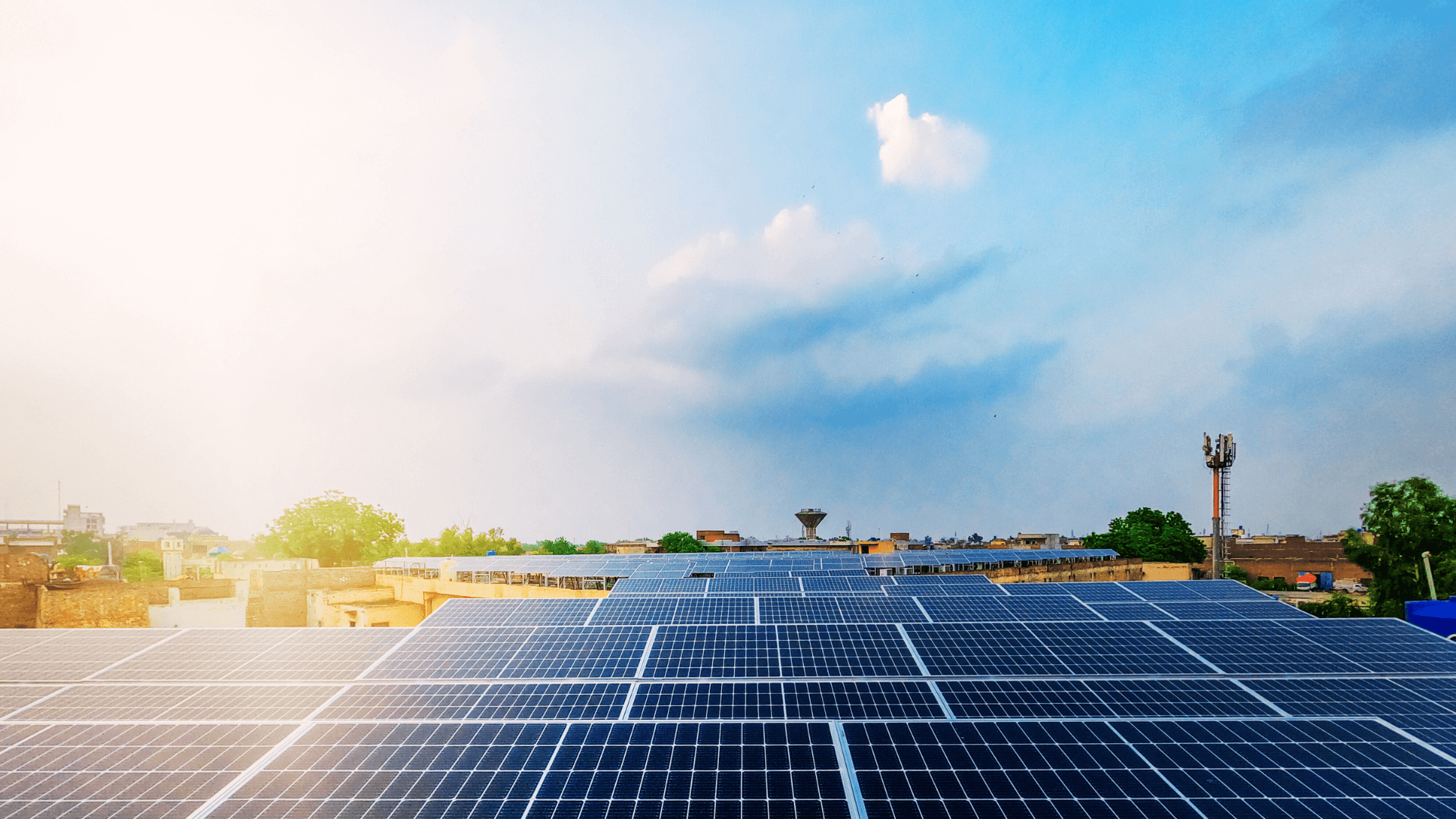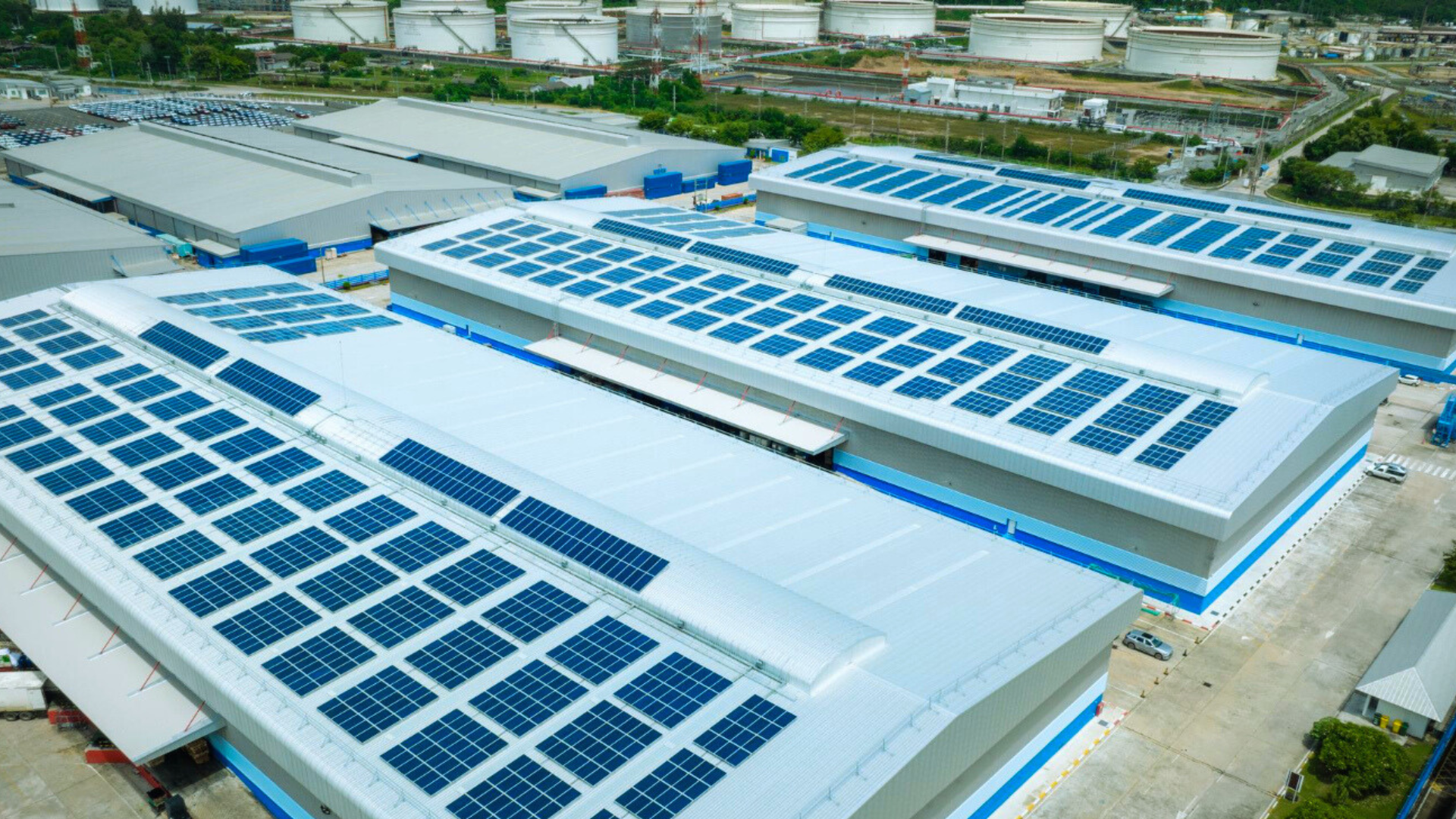With rising electricity prices, increasing awareness about climate change, and the introduction of better financing tools, more Indian businesses and homeowners are looking to find a solution on their rooftops.
With a rise in tailored financing and supportive government incentives like the Ministry of New and Renewable Energy (MNRE)’s Surya Ghar scheme, solar power has become more attainable than ever. Central to this transition is the solar loan, a specialised financing option that allows buildings to switch to solar energy without incurring huge upfront expenditures.
Let us explore the top 5 benefits of solar loans and finance, showcasing why now is the best time to invest in a solar panel installation.
1. Solar Panels are Now More Affordable Than Ever Before
One of the most transformative changes in recent years is the drastic drop in the upfront cost of solar power systems due to innovations in panel technologies. Advances in solar technology, improved manufacturing, and economies of scale have dramatically reduced the initial cost of solar panel installation, especially for common capacities like 3-5 kW.
Government efforts like the MNRE’s subsidy programs and other state-run schemes have played a pivotal role. Indians are now eligible for up to 40% subsidy on the installation of solar power systems. These subsidies directly make solar energy solutions more affordable.
However, affordability isn’t just about lower prices—it’s also about smarter payment options. This is where solar loans shine. With easy disbursement and extended repayment periods, solar loans eliminate the need for a lump sum investment, spreading out costs in manageable instalments.
So, whether you’re in a metro or a tier-2 city, financing your rooftop solar energy system with a residential loan means you can enjoy the benefits of solar energy without burning a hole in your pocket.
2. Solar Loans Help You Save on Electricity Bills
The rising electricity costs in urban and semi-urban India are pushing families to seek sustainable alternatives. Installing solar panels transforms your home into a mini power plant, generating solar electricity right from your roof. This offsets your monthly electricity bill, often by up to 90%, depending on system size and usage.
With net metering policies active in many states, excess electricity generated by your system can be fed back into the grid, earning you credits or direct deductions on your energy bill. This is particularly advantageous for households with variable energy consumption, as solar panels can effectively balance those spikes.
Now, combine this with a solar loan. In many cases, the repayment for your loan may be equal to or even less than your previous electricity bill. This means you start saving from day one.
Over the 15-20 year lifespan of your solar energy systems, your return on investment becomes substantial. Instead of paying ever-increasing utility bills, you’re paying off an asset that increases your property value and decreases your carbon footprint.
3. Power Your Home During Grid Failures
Power outages are still a frequent inconvenience, especially in rural and semi-urban regions. Solar energy promises energy security. With the right energy storage solutions, like solar batteries, your system can function even when the grid goes down.
This is crucial for maintaining essential household activities, from running water and functioning appliances to powering medical devices or work-from-home setups. A solar power system equipped with batteries ensures electricity when you need it the most.
Financing options have evolved to cover entire solar power ecosystems, including batteries and inverters. With EPC (Engineering, Procurement, and Construction) companies bundling installation and financing together, it’s easier than ever to invest in a resilient home energy system.
Many third-party providers like NBFCs also offer solar loans for battery-backed systems, allowing you to finance the entire setup without major upfront costs.
4. Installing Solar Panels Can Increase Your Home’s Value
Whether you’re looking to sell your home in the near future or just want to improve its long-term property value, rooftop solar is a great investment. Studies from global markets and emerging Indian data suggest that properties with solar power fetch higher resale prices and sell faster than those without.
Why? Buyers today are more conscious of energy costs, sustainability, and modern conveniences. A home equipped with a solar rooftop system reflects forward-thinking and offers immediate energy savings to the new owner.
For homeowners with existing mortgages, adding a rooftop solar system through a separate solar loan makes great financial sense. You’re essentially financing an upgrade that could increase your home’s market value by 3-5%, depending on location and energy production.
Some banks even offer better mortgage rates or depreciation benefits on eco-friendly homes, further improving the financial benefits of the adoption of solar energy.
5. Solar Energy Works in a Variety of Climates
India’s diverse geography, from humid coasts to arid deserts, doesn’t limit the performance of solar energy systems. Contrary to popular belief, solar panels don’t need intense heat; they need sunlight, which is available in abundance across most of the country.
Thanks to improvements in panel efficiency, solar capacity and performance have increased significantly. Whether you live in Kerala with intermittent rain or Rajasthan with intense sun, solar power remains a reliable energy source.
Furthermore, solar panel installation companies are now offering tailored solutions that consider roof angle, shade, and local weather patterns to maximise performance. The role of EPC professionals is crucial here. They evaluate your home’s specifics and suggest optimal configurations.
You Don’t Need to Own a House to Go Solar
One of the most overlooked truths about solar energy in India is that you don’t need to own a house to reap the rewards of clean energy. With third-party ownership models, community solar, and shared solar rooftop arrangements, renters can also benefit.
Moreover, many solar loan providers are now creating financing products not just for individual homeowners but also for housing societies, apartment associations, and even tenants with the landlord’s approval. Whether it’s a home or business, options are expanding across the board.
Ready to Finance Your Solar Future?
The financial benefits of residential solar adoption in India are practical, measurable, and within reach. From lower energy costs and better home value to greater energy independence and environmental gains, the case for using solar is stronger than ever.
With the help of solar financing, the barriers to the installation of solar systems have virtually disappeared. Whether you’re concerned about upfront costs, repayment periods, or eligibility criteria, modern financing tools are designed to be inclusive and hassle-free.
Now’s the time to embrace renewable energy, cut down on your carbon footprint, and future-proof your home. Whether your motive is sustainability, savings, or self-reliance, solar electricity offers it all.
Want to get started? Contact our support team or apply directly through the EFL Clik App and start your journey toward a brighter, greener tomorrow.
FAQs
Why are solar panels becoming more affordable?
Solar panels are cheaper now due to improved manufacturing processes, economies of scale, and government incentives like those offered by the Ministry of New and Renewable Energy (MNRE). This drop in the cost of installation makes solar power a cost-effective option for many households.
How can a solar loan help save money?
A solar loan spreads the upfront cost over time, often allowing the borrower to start saving immediately. The money saved on your electricity bill can cover a large part—or even all—of your repayment amount, making the investment financially viable.
Does installing solar panels increase the value of your home?
Yes. Properties with solar energy typically have higher property value and attract environmentally conscious buyers. The ability to reduce energy costs and the home’s contribution to environmental sustainability are highly attractive in today’s market




